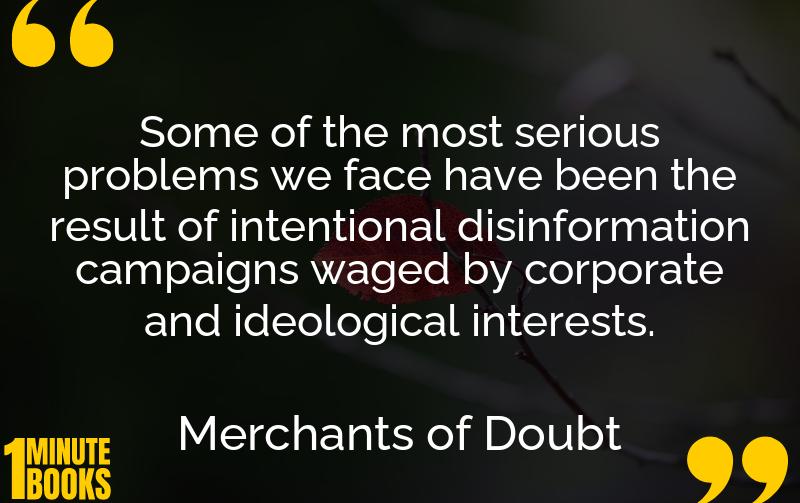
Merchants of Doubt explores how influential scientists used their connections to sow doubt on key issues like tobacco’s dangers and climate change, distorting public perception and delaying crucial legislation.
Main Lessons
- Doubt as a strategy: Influential scientists sowed confusion around health and environmental issues to obstruct regulations and protect corporate interests.
- Tobacco deception: Industry-funded scientists undermined links between smoking and cancer to maintain sales and avoid regulation.
- Political connections: Scientists used ties with right-wing institutions and politicians to amplify their misleading campaigns.
- Challenging consensus: Figures like Fred Seitz opposed well-established scientific agreements on issues including global warming.
- Environmental challenges: The book highlights tactics used to deny issues like ozone depletion and acid rain in favor of corporate interests.
- Impact on policy: Misleading reports shaped public discourse and delayed legislative action, showing the influence of false narratives.
- Media’s role: By echoing doubt, media outlets contributed to ongoing public confusion and maintained skepticism towards scientific findings.
- Weaponizing science: Science was manipulated to argue against accepted facts, affecting arms race policies and environmental regulation.
- Narrative significance: The book serves as a wake-up call to remain vigilant against misinformation and exercise critical thinking.
- Historical perspective: Environmental issues have been politicized from bipartisan beginnings to denial during Reagan’s era.
- Ozone layer success: Despite initial corporate resistance, scientific evidence led to effective regulations addressing CFC emissions.
- Continued challenges: The denial of climate science remains a pressing issue, emphasizing the need for informed public awareness and reliable scientific discourse.








